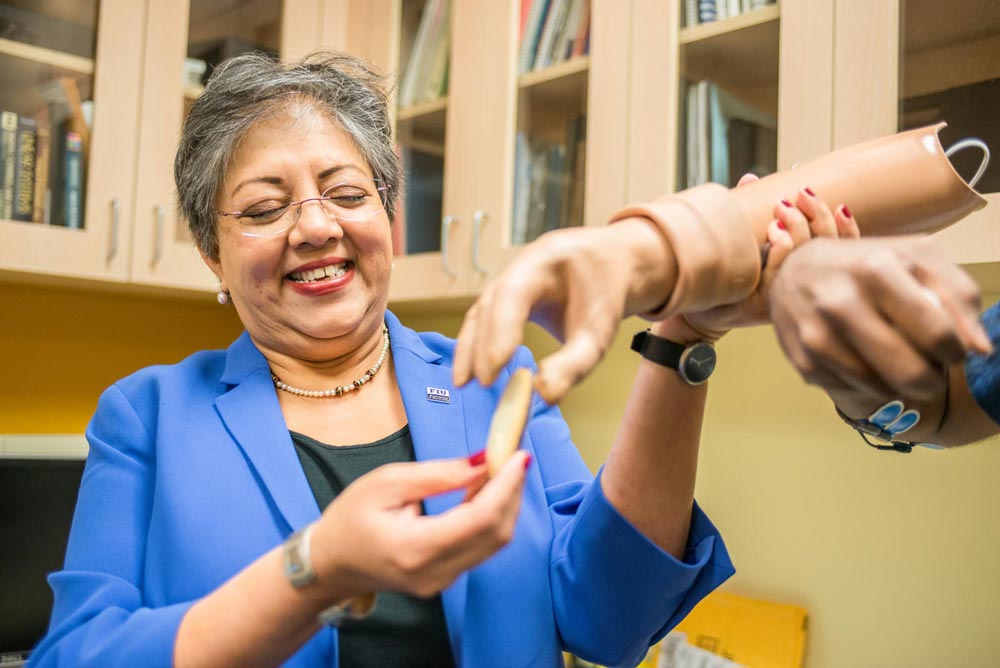The Neural-enabled Prosthetic Hand System (NEPH) developed at Florida International University by Ranu Jung and her Adaptive Neural Systems Laboratory team, restores a sense of touch/grasp force and hand opening by stimulating sensory nerve fibers in the residual limb with fine wires implanted inside nerves. As muscle activity controls the motors in the prosthetic hand, sensors in the prosthetic hand provide information that commands an implanted neurostimulator to deliver stimulation pulses to the sensory nerve fibers. The elicited sensations can improve control of the prosthesis. “This research team established bold goals from the outset to build a prosthetic that restores a natural sense of touch and control following loss of a limb,” said Jill Heemskerk, acting director of the National Institute of Biomedical Imaging and Bioengineering. “Dr. Jung and her team have integrated biology, electronics, and mechanics to provide a rich experience for a recipient of the neural-enabled prosthetic hand.”
Read the entire story in FIU NEWS.

